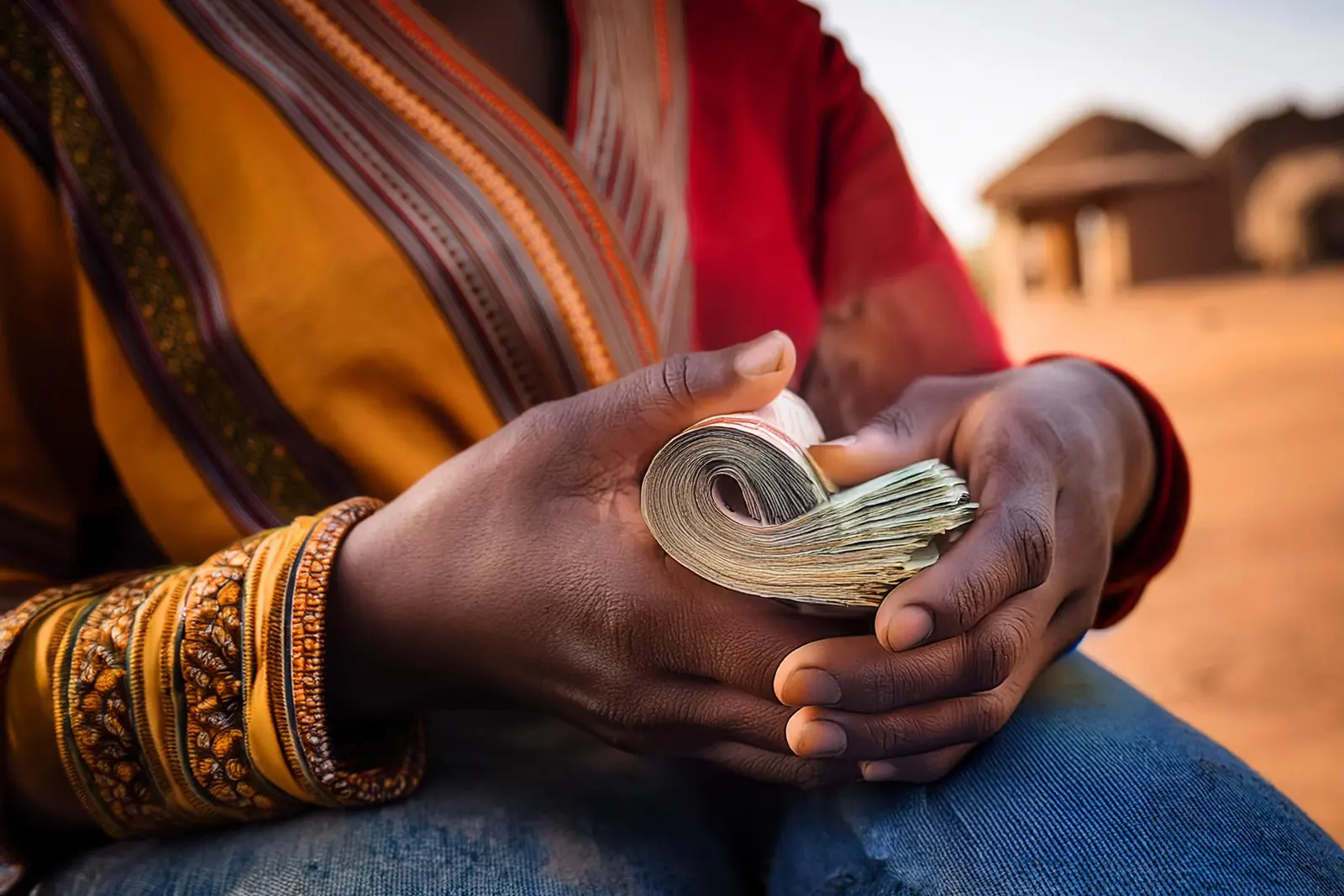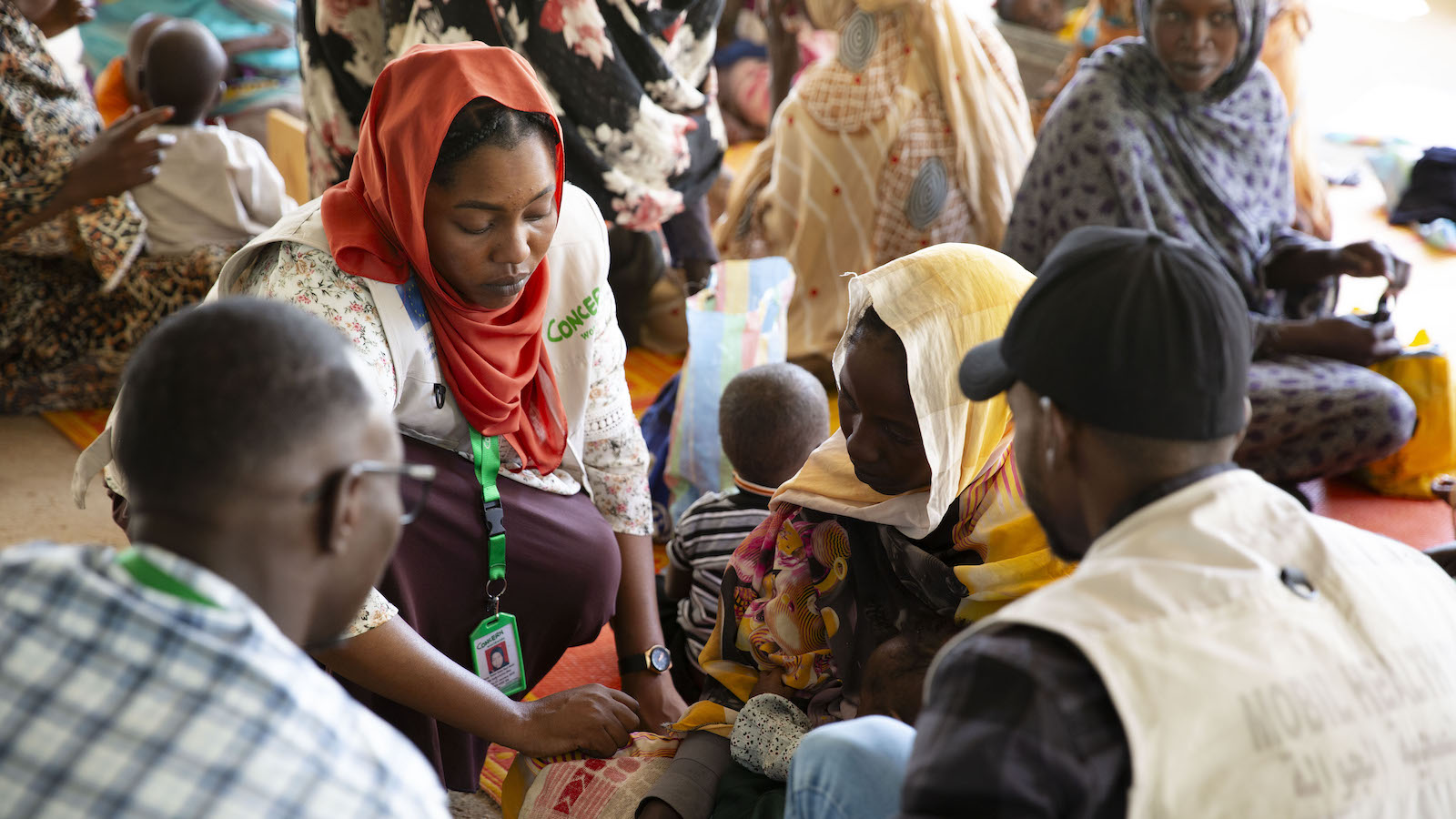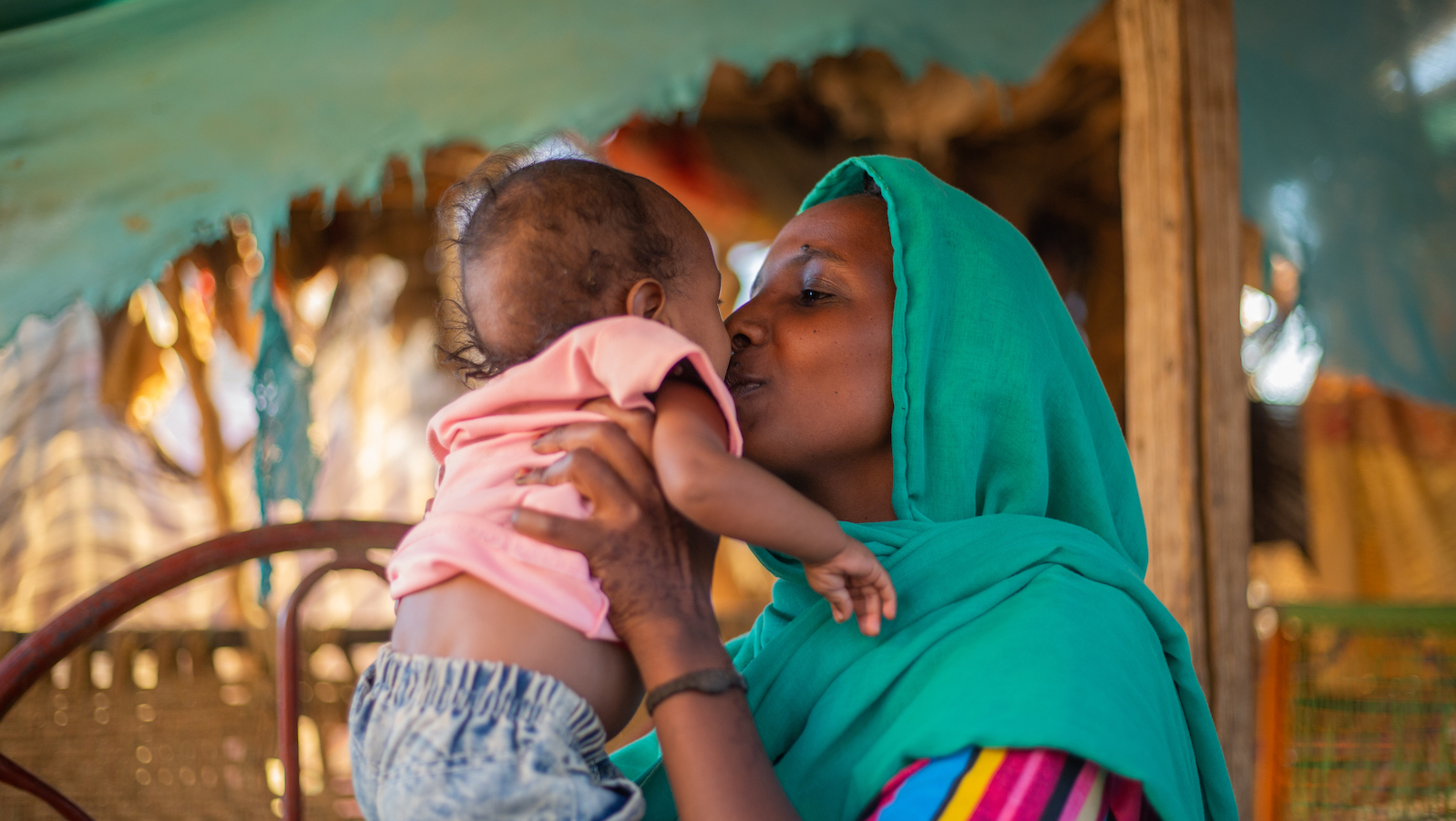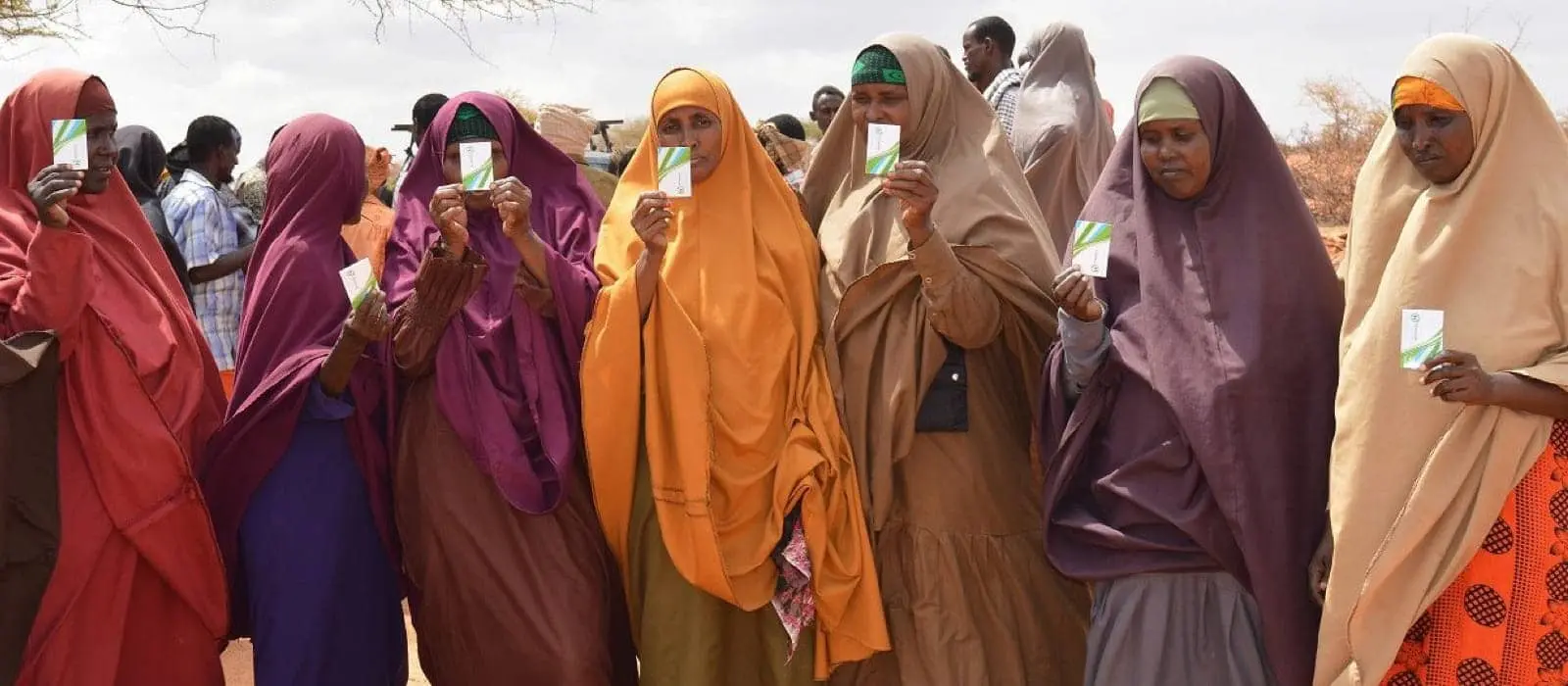As the West Darfur region of Sudan remains engulfed in political instability and ongoing conflict, both food and money are in short supply. Concern is providing direct cash assistance to vulnerable people and families to help them meet their basic needs.
Sometimes, cash is the best way
Most of the region’s residents – many already displaced by conflict – are cut off from formal financial systems and have few opportunities to earn income. A recent study by the Cash Working Group in West Darfur found that 90% of respondents preferred cash over other forms of assistance. It provides flexibility in meeting diverse needs, from food and medicine to housing and education, in a volatile and fast-changing environment.
In this round of funding, the money took the form of $75 cash payments and was distributed through the traditional Hawala payment system. This involves a network of agents, who are immersed in the culture, norms, and values of region, and is primarily based on trust and reputation, although backed up by a verification system. The recipients were chosen by a selection committee, based on their vulnerability, and the final list was verified jointly by Concern and local authorities.
The benefits of cash payments are many. They allow recipients the freedom to decide what their own priorities are, be it food, rent, or other expenses. It's a cheaper, faster, and safer way to help people, especially in a volatile environment, where the transport of goods can be logistically complex and a security headache. And it helps to stimulate and support local markets, keeping the money within the community.
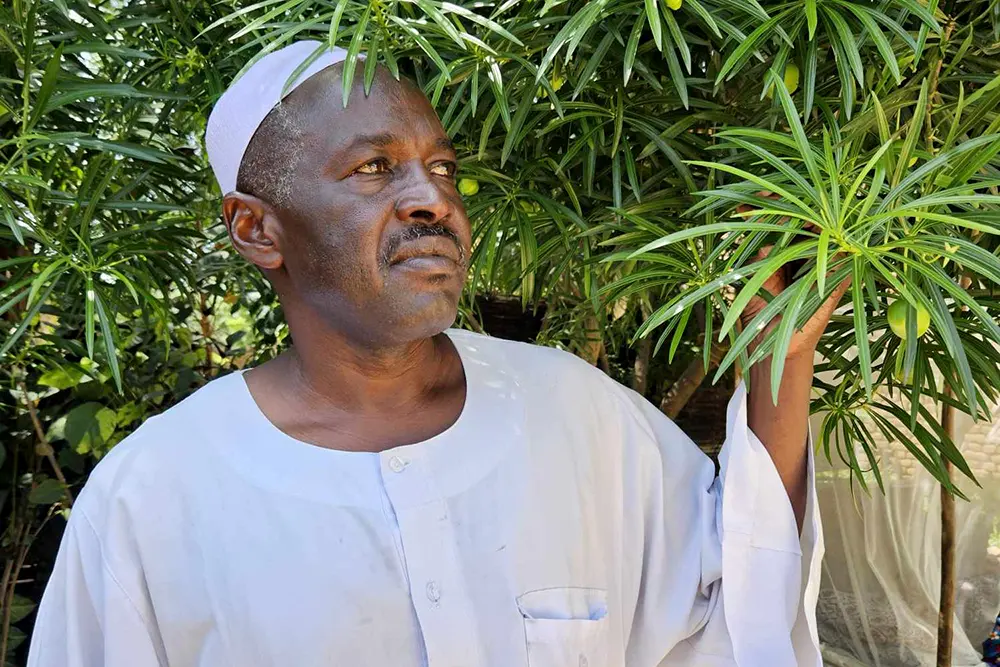
“There are so many people who need help"
Vulnerability takes many forms
Salim, a retired civil servant from Geneina, is one of those directly impacted by the ongoing conflict. Forced into retirement due to vision impairment, he had relied on family support to make ends meet. But because of the conflict, that support system has collapsed and he has struggled to make ends meet.
“This cash has helped resolve a lot of the financial problems for people around here," Salim says, as he recalls the days when a pound of sugar cost 300 Sudanese pounds. Today, it’s 2,000 pounds – a staggering increase of nearly 600%. “There are so many people who need help,” he adds.
In war-torn Geneina, there are countless stories of families fighting to stay afloat. Among them is Fania, who says she’s about 70 years old, but doesn’t know her exact age. Unmarried and without children, Fania has long depended on her brother, who is now out of work. As their situation became more precarious, she resorted to selling items of furniture . “I was planning to sell the last bed at the market, but now I don’t have to,” Fania says, after receiving a cash payment from Concern. The assistance has helped her cover basic living costs, providing a temporary reprieve from the relentless financial pressures. Before the conflict, Fania sold small goods in the local market, but without capital, she has been unable to continue that work.
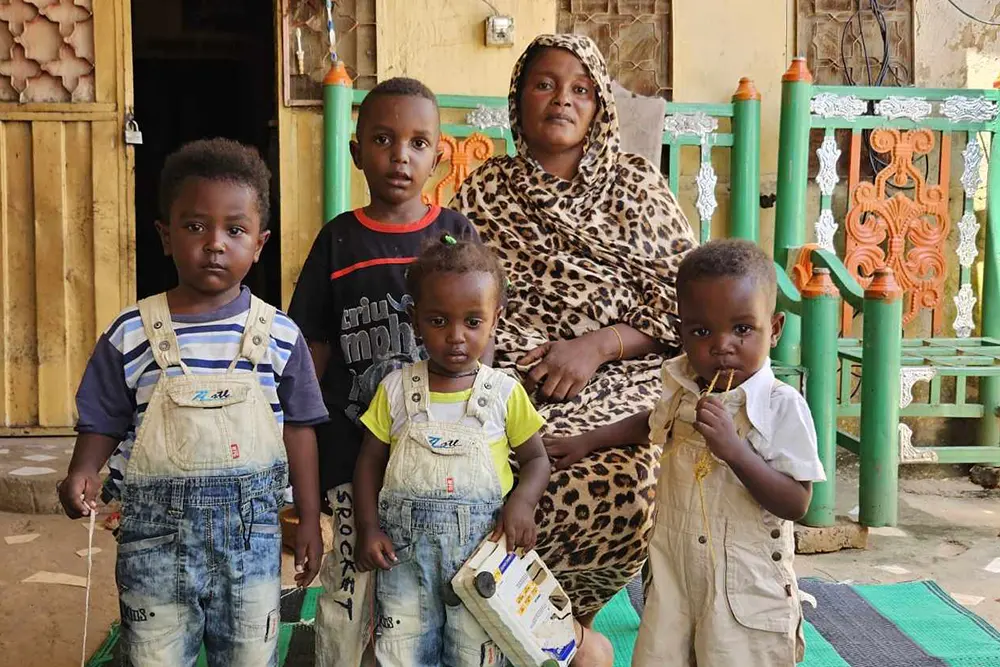
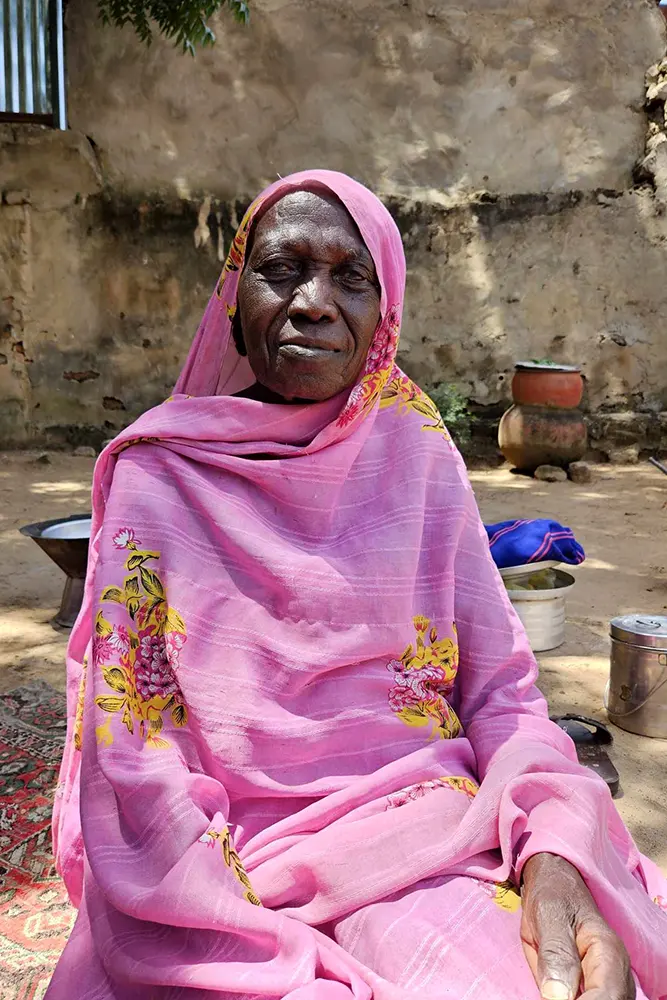
“There was no way I could keep going without help”
Zuhal, a 38-year-old single mother of seven, says the assistance is nothing short of a lifeline. “This money has come at exactly the right time for me,” she says. Her kids are aged 2 to 18, and are entirely dependent on her, yet she is unemployed and without a stable source of income. Zuhal’s situation, difficult even before the conflict, has become unbearable. With the cash assistance, she plans to address the immediate healthcare needs of her family and start a small business, hoping to pull herself out of the economic quagmire. The struggle for women like Zuhal, left behind to care for their children amid chaos, is emblematic of the broader crisis. “There was no way I could keep going without help,” she says.
An important lifeline
Direct cash support has provided a temporary lifeline to families across West Darfur, but it is a stopgap measure in a region where the needs are vast and resources are dwindling. Subodh Vijapure is Concern’s Director of Emergency Programs in Sudan. He says: “The current conflict has triggered a dramatic rise in prices and reduced people’s capacity to grow food or earn income, leaving millions of people at risk. This cash assistance will give some relief to vulnerable households, but there is much more to do, and we are working hard to extend our reach and broaden our supports for people enduring one of the worst humanitarian crises in the world today.”
The header image for this story was artificially generated by Adobe Firefly.

